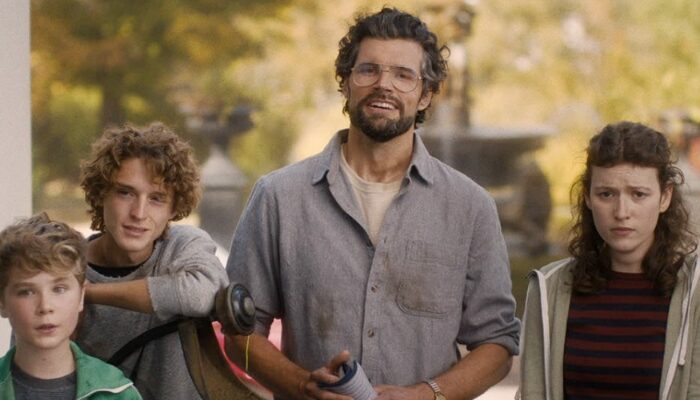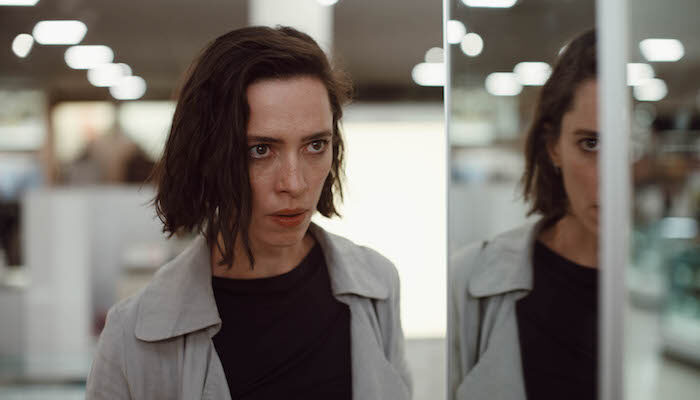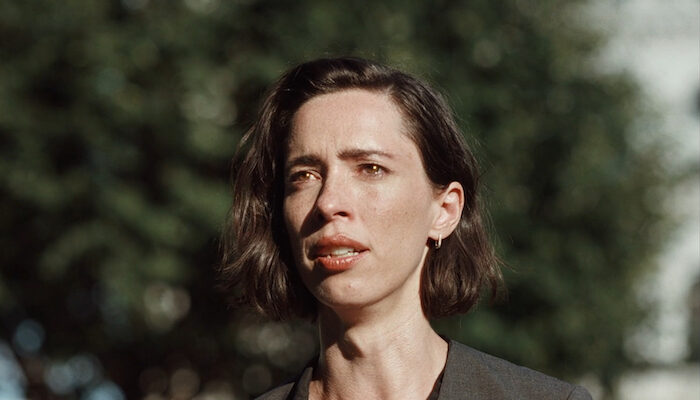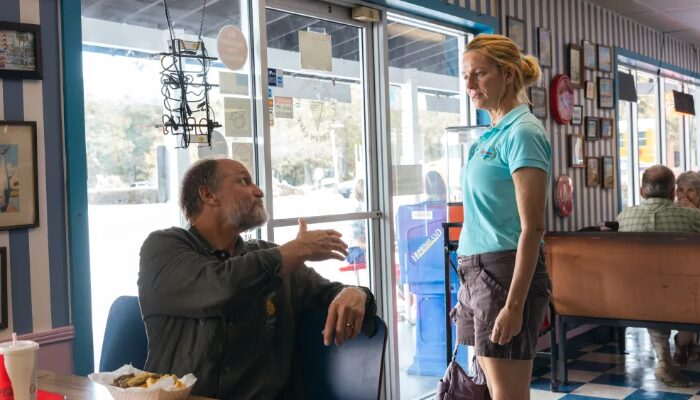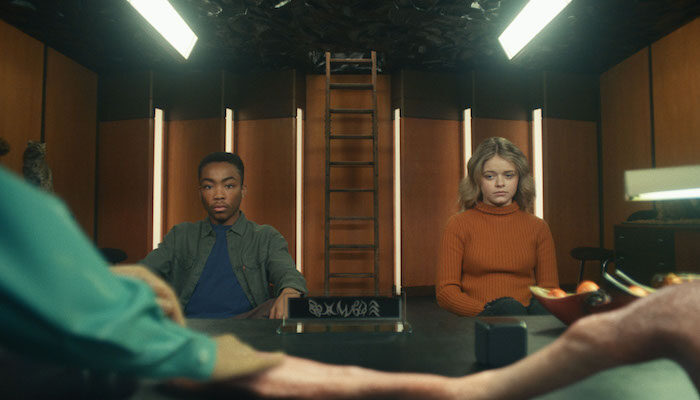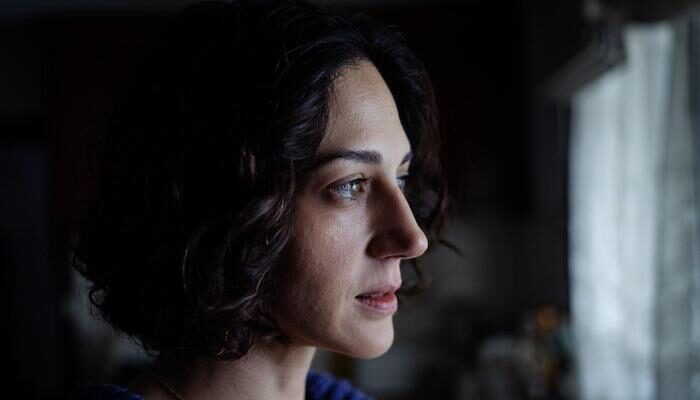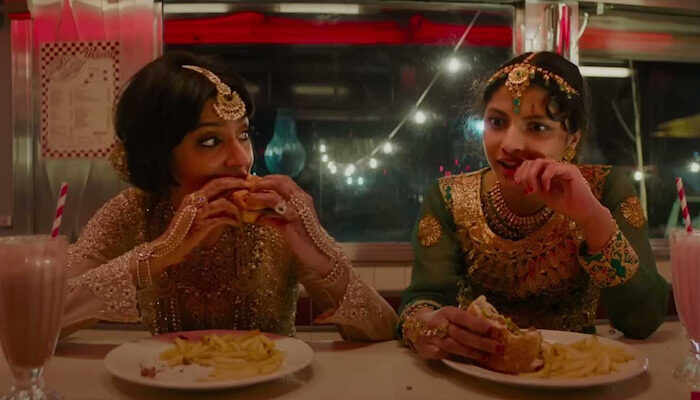Film Review: RESURRECTION: Elegant & Suspenseful Thriller with a Senseless Conclusion [Sundance 2022]
Resurrection Review
Resurrection (2022) Film Review from the 45th Annual Sundance Film Festival, a movie directed by Andrew Semans, starring Rebecca Hall, Tim Roth, Grace Kaufman, Michael Esper, and Agnes Wong Carbone.
And it was all going so well. The acting was superb throughout. The storyline had a very promising beginning. The excellent delivery lifted the dialog out of tropism.
All in all, these elements steadily converged into a truly suspenseful thriller. Rebecca Hall portrayed Margaret as a quintessential top-notch executive at a medical research firm, guiding her interns’ well-being on the job as well as at home. She enjoys a mutually respectful (but fun-sparring) relationship with her daughter, Abbie (Grace Kaufman), whose eighteenth birthday is right around the corner coinciding with the start of her college career.
She even manages an intimate relationship with Peter (Michael Esper), a colleague at the same firm. This appears to be a ‘healthy’ one, meaning that they both understand and play by the same set of rules. (Presumably he is not a subordinate; Margaret is clearly too smart for that.)
One is neither surprised nor disappointed at Margaret’s distress at the appearance of a ‘mystery man’ (Tim Roth), first at a conference, and then at various times thereafter, ramping up Margaret’s mounting panicky reactions.
Okay so far. It was no stretch to believe that this man represents some sort of indiscretion leading to feelings of guilt and/or shame in Margaret’s past. It’s even feasible that the man is an hallucination; this is a device used many times before to good effect. So it’s no surprise that soon enough she sees the mystery man again sitting on a park bench and confronts him, demanding that he stop following her. And we now discover his name: David.
A clever twist here: At first, David either denies ever meeting Margaret before, or pretends to; it’s the viewer’s choice. Within seconds of his denial, he admits to recognizing Margaret and claims to carry their son, Ben, in his belly–the child she abandoned twenty-two years before. Ah-ha–an hallucination, then. Bizarre, but sure, why not? The obscure backstory is certainly tantalizing; quite a suspense builder.
At first one feels moved at Margaret’s distress, then as fearful as her daughter, Abbie, watching her mother’s plunge into paranoia. At least the audience at this point had some inkling of the backstory which Abbie did not, which Margaret decides to share instead with her intern, Gwyn (Angela Wong Carbone), who finds this confidence disconcerting.
In essence, this anecdote keeps the storyline’s logic on track. It turns out that David charmed Margaret’s “hippie” (i.e., permissive) parents into allowing the 16-year-old to engage in what became a sadomasochistic relationship, into which a son, “Ben,” was born and used as leverage to keep Margaret bound in a series of hurtful exercises known as “kindnesses.” When David amputates a couple of Ben’s fingers to punish Margaret, she decides she’s had enough and abandons her relationship along with her son.
Good. Yeah. That makes sense, especially the guilt and shame Margaret feels at leaving behind Ben at the mercy of an abusive partner. With David as an hallucination most likely, one turns to the impact on Margaret’s home and career. As expected, both are suffering; Margaret’s moods get as frazzled and frayed as her hair with each imagined encounter with David. Despite her protests, she falls into the same pattern of abuse she supposedly suffered as a teen.
Meanwhile, Abbie gets so alarmed she recruits Peter to conduct an intervention. Peter, worried in his own right, confides that her colleagues have noticed Margaret’s behavior, to which she takes umbrage at this intrusion. At this point Abbie has had enough of her mother’s craziness, packs her bags, and leaves.
The suspense at this point has mounted to critical mass. How will Margaret reconcile spectral David with the tatters of her rational, well-organized life? She and David have the expected showdown, in which she eviscerates him in order to “save” Ben, thereby redeeming herself.
Does Margaret really see Ben’s baby-face beneath that pile of guts? Maybe, maybe not. The next scene must certainly tell the tale once and for all.
But … hold on. Wait.
That can’t be Margaret, sitting upright in bed, calm as you please and smiling as she holds the swaddling, 22-year-old infant Ben? And is that Abbie, taking the infant and rocking him, now presumably reconciled and living back home? Did she ever leave?
Hard as it is to fathom, the end credits start to roll.
There are those screenwriters, this reviewer among them, that consider an ending the toughest to write. If the intent of this gifted writer/director was to leave a question in the mind of the audience, it is this: why didn’t this tale, among all the possible permutations, deserve something better than it got? It seems to belong in another movie, senseless and nihilistic, especially considering how immensely enjoyable the film was otherwise.
Rating: 7/10
Leave your thoughts on this Resurrection review and the film below in the comments section. Readers seeking to support this type of content can visit our Patreon Page and become one of FilmBook’s patrons. Readers seeking more Sundance Film Festival news can visit our Sundance Film Festival Page, our Film Festival Page, and our Film Festival Facebook Page. Readers seeking more film reviews can visit our Movie Review Page, our Movie Review Twitter Page, and our Movie Review Facebook Page. Want up-to-the-minute notifications? FilmBook staff members publish articles by Email, Twitter, Facebook, Instagram, Tumblr, Pinterest, Reddit, and Flipboard.
Related Articles
FilmBook's Newsletter
Subscribe to FilmBook’s Daily Newsletter for the latest news!

